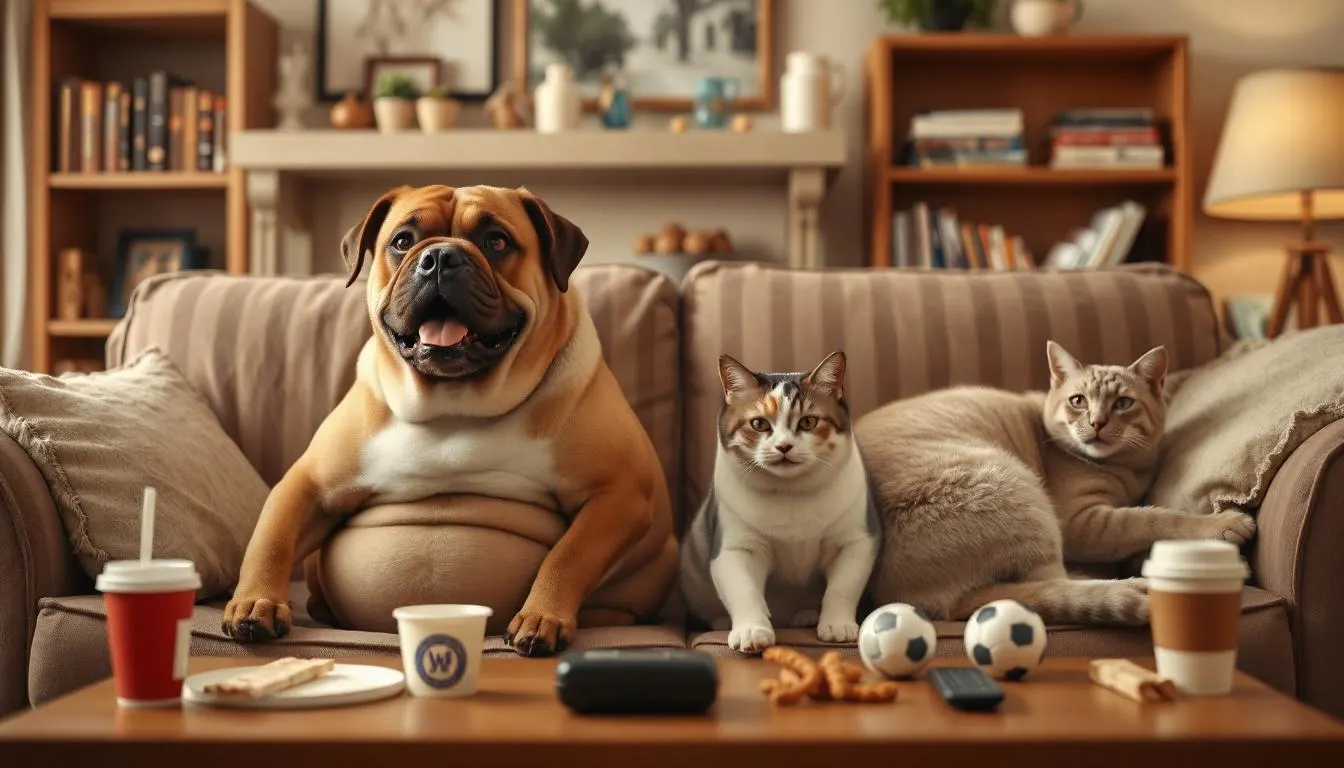Introduction to Obesity in Pets
Hey there pet lovers! Let’s talk about a topic that’s close to our furry friends’ hearts (and waistlines) – obesity. Just like in humans, obesity in pets is becoming a growing concern that can have serious consequences on their health and well-being.
Whether it’s from overfeeding, lack of exercise, or just too many treats, our pets can easily pack on the pounds if we’re not careful. But don’t worry, we’re here to help you understand the causes of pet obesity, the health risks it poses, and most importantly, how to prevent and manage it.
So grab a treat (just one!), cuddle up with your pet, and let’s dive into the world of pet obesity together. Because a happy and healthy pet is a happy pet parent!
Causes of Obesity in Pets
Have you ever wondered why your furry friend might be carrying a few extra pounds? Well, there are several factors that can contribute to obesity in pets. One common cause is overfeeding – giving your pet too much food or too many treats can quickly lead to weight gain. Lack of exercise is another key factor, as pets need regular physical activity to stay healthy and maintain a healthy weight.
Additionally, certain health conditions, such as hypothyroidism or arthritis, can also contribute to obesity in pets. It’s important to consult with your veterinarian to rule out any underlying medical issues that might be causing your pet to gain weight.
By understanding the causes of obesity in pets, you can take proactive steps to help your furry friend maintain a healthy weight and live a long, happy life.
Health Risks Associated with Pet Obesity
Let’s talk about the serious health risks that come with pet obesity. Just like in humans, carrying extra weight can lead to a variety of health problems for our furry companions. Obesity in pets can increase the risk of diabetes, arthritis, heart disease, and even certain types of cancer. It can also put a strain on their joints and organs, leading to a decreased quality of life and potentially a shorter lifespan.
It’s important to keep an eye on your pet’s weight and take action if they start to pack on the pounds. Regular visits to the vet can help monitor their weight and ensure they stay healthy. By managing their diet and exercise routine, you can help prevent these health risks and keep your pet happy and active for years to come.
Impact of Human Habits on Pet Obesity
Hey there pet parents! Did you know that your own habits and lifestyle choices can have a direct impact on your furry friend’s weight? It’s true! Just like humans, pets can easily gain weight if they are overfed or not getting enough exercise. So, if you find yourself reaching for that extra treat or skipping out on daily walks, chances are your pet might be suffering the consequences too.
But don’t worry, it’s never too late to make a change! By being mindful of your own habits and making healthier choices for both you and your pet, you can help prevent obesity and promote a happier, healthier life for your furry companion. Remember, you are your pet’s biggest influence, so lead by example and make sure to prioritize their health and well-being.
Prevention and Management of Pet Obesity
So, you want to keep your furry friend healthy and happy? Well, preventing and managing pet obesity is the way to go! Here are some tips to help you out:
- Monitor your pet’s food intake and avoid overfeeding them.
- Choose high-quality, balanced pet food to ensure they are getting the necessary nutrients.
- Avoid giving them too many treats – opt for healthy alternatives like carrots or apples.
- Make sure your pet gets regular exercise – playtime, walks, or even a game of fetch can do wonders!
- Consult with your veterinarian to create a personalized weight management plan for your pet.
By following these steps and showing your furry friend some extra love and care, you can help prevent and manage pet obesity, ensuring a long and healthy life for your beloved companion.
Importance of Regular Exercise and Proper Nutrition for Pets
Just like humans, pets also need regular exercise and proper nutrition to maintain a healthy weight and prevent obesity. Make sure to engage your pet in daily physical activities such as brisk walks, playtime, or interactive games to keep them active and fit. Additionally, providing a balanced diet with the right amount of nutrients is crucial in managing their weight.
Consult with your veterinarian to determine the appropriate type and amount of food for your pet based on their age, size, and breed. Avoid overfeeding and refrain from sharing human snacks that may be harmful to your pet’s health. By incorporating a combination of exercise and a nutritious diet, you can help your furry friend stay healthy, happy, and at an ideal weight.
Conclusion
Congratulations on taking the first step towards understanding the importance of preventing and managing pet obesity! Remember, your furry friend’s health and well-being are in your hands. By making small changes to their diet and exercise routine, you can help them live a longer, healthier life.
Don’t forget that regular veterinary check-ups are crucial in monitoring your pet’s weight and overall health. Your veterinarian can provide you with personalized advice and guidance on how to keep your pet at a healthy weight.
So, let’s commit to keeping our pets happy and healthy by providing them with the exercise and nutrition they need. Together, we can ensure that our beloved companions stay fit, active, and by our side for many years to come!


